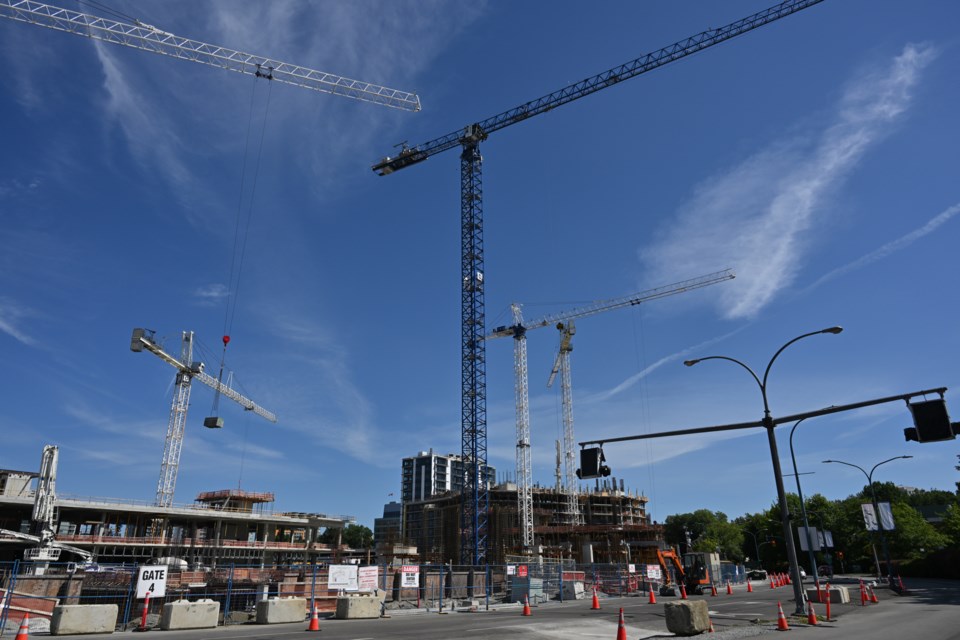A Richmond-based provincial agency is issuing safety recommendations following an increase in risks associated with cranes.
WorkSafeBC announced Tuesday that it developed a risk-reduction strategy with crane sector stakeholders to help improve tower crane safety in the province.
The strategy came after several crane-related accidents took place this year, including the deadly crane fall in February at the Oakridge Park luxury condo construction site that claimed one life. Earlier in 2021, five workers were killed in a tower crane collapse in Kelowna.
"More cranes are in operation than ever before," said WorkSafeBC in a media release, and the risk is compounded by "increasingly complex, multi-employer worksites."
Recommendations from WorkSafeBC include reviewing the existing crane operator certification program, exploring ways to improve training and skills, increasing staffing for WorkSafeBC's specialized crane inspection team and developing new regulations to address the frequency of tower crane operations.
Todd McDonald, head of prevention services for WorkSafeBC, said crane safety is a priority for the agency.
“With a greater number of cranes operating in increasingly complex worksites, we need to ensure that employers provide the training, supervision and safe-work practices needed to keep workers safe in an evolving work environment," he explained.
The province currently has about 400 tower cranes in operation and 1,200 detailed inspections were conducted in 2023.
WorkSafeBC is set to discuss the recommendations in the following weeks with the provincial Ministry of Labour, SkilledTradesBC, the BC Association for Crane Safety and other stakeholders such as employers.
Its regulatory amendment for tower cranes, approved by its board of directors earlier this year, is set to take effect in October. All employers responsible for a tower crane activity at a B.C. workplace will be required to provide a written notice of project (NOP) to WorkSafeBC at least two weeks before starting crane activity.
"The NOP will allow WorkSafeBC to know who is qualified to perform the work, as well as when, where, and how this work will take place," reads the media release.
WorkSafeBC's ongoing crane safety initiative also includes its crane and mobile equipment team established in 2008. According to its website, the team's 2024 inspections will focus on aspects including machine assembly and disassembly, as well as operator qualification.
Got an opinion on this story or any others in Richmond? Send us a letter or email your thoughts or story tips to [email protected]. To stay updated on Richmond news, sign up for our daily headline newsletter.



